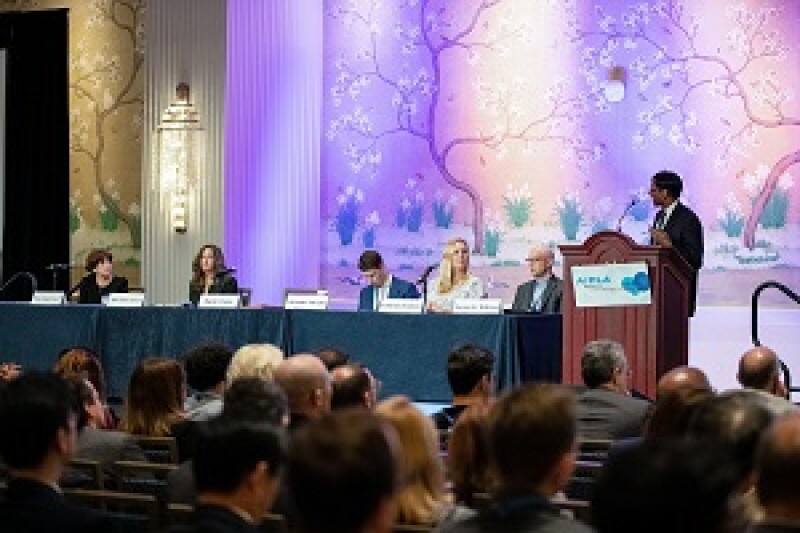
Deciding whether to patent inventions or keep them as trade secrets, and ensuring that increasingly mobile employees do not leak confidential information to competitors or in journals, are key concerns for autonomous car companies, according to a panel at this year’s AIPLA Annual Meeting.
Catherine Tornabene, head of IP at driverless vehicle firm Aurora Innovation, pointed out that companies must keep an eye on the future of mobility when they are considering whether to patent an invention or keep it secret.
While something like a black-boxed machine-learning algorithm that helps run a car might not be detectable now, she said, that does not mean that it will not be within the next decade.
“For me, every time we look at patenting v trade secrets, it is a pretty serious decision. What we can tell right now about machine learning is really different than what we could tell 10 years ago.
“You have to be thinking about 10 to 15 years in the future. It is hard to see much further than that but it is something to think about.”
Christopher Nalevanko, general counsel at driverless car start-up Zoox, said that choosing whether to patent something or keep it as a secret was an important matter for his firm as well, and for many of the same reasons.
Tornabene went on to say that where a company chooses to keep inventions confidential, they must consider the challenges of managing an increasingly mobile workforce. Many of the people who work at driverless car companies are highly educated and skilled in a fast-growing industry, and are therefore seen as a competitive asset in the automotive and tech industries.
“They can move around,” she said. “And when you approach your IP strategy, you must consider what happens as someone comes in and out.” She added that not only do firms not want their trade secrets to be handed over to a competitor, they do not want to be in a situation where they have unwittingly incorporated secrets from another company into a project.
Nalevanko added that many of these employees are also interested in the academic space and publishing their work in journals. The risk is that staff will publish something and inadvertently disclose a critical piece of technology. As such, businesses should work with employees to enable them to publish in academic journals while reducing the risk of disclosure.
“Driverless cars is a hugely academic area and you need some sort of process to allow employees to engage with academia,” he said.
Later in the session, Dechert partner Diane Siegel Danoff spoke about the lessons that can be learned from the autonomous vehicle trade secret case Waymo v Uber around how to better manage trade secrets.
Businesses looking to protect trade secrets can use e-alerts to detect suspicious activity, she noted, and conduct computer forensic checks after learning of employees’ plans to go to a competitor. She advised that companies should not exempt executives from this scrutiny or allow employees to start up competing ventures on the side.
“The people at the top can easily be the ones stealing your stuff,” she said. “And the point about not letting employees start up side ventures seems obvious, but it needs to be said.”
Danoff added that there are plenty of lessons that need to be learned when it comes to companies taking on staff from competitors. They should require written confirmation from said employees that they have not taken any documents from their previous employer or will not use any written or unwritten trade secrets from that business.
“You should also consider limiting the new hire’s role and erecting ethical walls to prevent the transference of secrets. That is something that the judge was very concerned with in the Waymo v Uber case.”
Nalevanko added that it is becoming increasingly important for his business to manage its use of open source technologies. While Zoox is keen to contribute its data and tech to open projects, it has to be careful to ensure that proprietary property is protected.
Photo: Doug Van Sant, EPNAC











